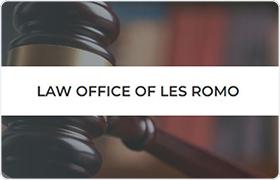Paige Trusts Lawyer, Texas
Sponsored Law Firm
-
 x
x

Click For More Info:
-
Law Office of Les Romo
102 West Morrow Street Suite 202 Georgetown, TX 78627» view mapEstate Law Helping You Understand Your Options
Attorney Les Romo can help protect your interests and resolve your legal issue in the best possible way. Attorney Romo is dedicated to vigorously representing his clients.
800-769-7481
Kara Borchers Jones
Wills & Probate, Trusts, Estate Planning, Divorce, Divorce & Family Law
Status: In Good Standing
FREE CONSULTATION
CONTACTFREE CONSULTATION
CONTACTDouglas Jonathan Paul
Wills, Trusts, Estate Planning, Estate
Status: In Good Standing Licensed: 20 Years
Melissa Stone Myers
Trusts, Estate Planning, Estate, Business
Status: In Good Standing Licensed: 25 Years
Julia Ashmore Nickerson
Wills, Trusts, Estate, Business & Trade
Status: In Good Standing Licensed: 27 Years
 Les Romo Georgetown, TX
Les Romo Georgetown, TX Practice AreasExpertise
Practice AreasExpertise
